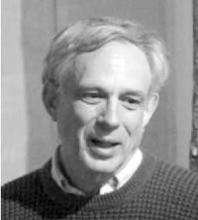What Is It
The 17th Century philosopher Rene Descartes is often considered the father of modern philosophy. His Meditations are a staple in introductory philosophy courses, and his views on the relation of mind and body have dominated philosophical discussion of this issue for three hundred years. John and Ken discuss the life, times, and philosophy of this fascinating French philosopher with Ron Rubin from Pitzer College, author of Silencing the Demon’s Advocate: The Strategy of Descartes’ Meditations.
Listening Notes
Why is Descartes considered one of the greatest philosophers of all time? Descartes is most known for the problem of subjectivity, that is, how do we know there is more to the world than my own perceptions and thoughts. Ken introduces Ron Rubin, professor at Pitzer College. How did Descartes get to the point where he had to prove his own existence? Rubin says that Descartes' s time was full of doubt about science and received wisdom. He was trying to provide a solid foundation for knowledge. The received wisdom of the day was Aristotelian, but that was being undermined while not being replaced. Descartes wanted all knowledge to be as certain as mathematics. What is the point of his “Cogito, ergo sum” argument? It is immune to doubt. After that, the next step is the existence of God.
Doesn't Descartes' method throw out a lot of truth? Should anyone live doubting so much? Descartes' point is not for everyone to live like that, but rather that everyone should radically doubt things at least once in their lives. Descartes thought he was a thinking thing, a mind, essentially. This was the source of Cartesian dualism. How strong is the cogito argument? Can we have doubts without a doubter? How much can we actually know about the Cartesian cogito?
Why is Descartes demonized today? Ken says that some people want to attack some of the presuppositions of Cartesian philosophy, such as separation of mind and body. Descartes was consistent about his method throughout his life. Descartes' method came to him in a dream. Descartes went to Sweden to tutor the princess there and died soon after.
- Roving Philosophical Report (Seek to 04:26): Amy Standen asks some people on the street what they think about Cartesian style doubts.
- Sixty Second Philosopher (Seek to 50:26): Ian Shoales goes over the life and times of Rene Descartes.




Comments (3)
Harold G. Neuman
Wednesday, December 12, 2018 -- 3:06 PM
It appears to me he was aIt appears to me he was a better mathematician. His geometry was groundbreaking; his Discourse on Method, instructive; the Meditations, not so fascinating. Locke, Hume and others succeeding Descartes were more detailed philosophically, even when their notions overlapped, as they often did (for example, Locke's and Hume's ideas about ideas). Let's give credit where it is due, but not conflate something like I THINK, HENCE, I AM into something more than what it was. My take on that was, in fact: I THINK, BECAUSE I CAN. Which, to me, states the notion far more precisely.
Ian
Tuesday, February 11, 2020 -- 8:24 AM
I'm a philosophy major atI'm a philosophy major at Arizona State. I would appreciate a quick response to this.
Descarte believes in two different kinds of matter? Material substances, or the body, and mind matter, in the pineal gland? Is God another kind of matter for him?
Is non-matter another kind of matter for Descarte?
admin
Tuesday, February 11, 2020 -- 9:37 AM
No, no, no, and no. YouNo, no, no, and no. You really should ask your professors at Arizona State to clear up your confusion about Descartes.